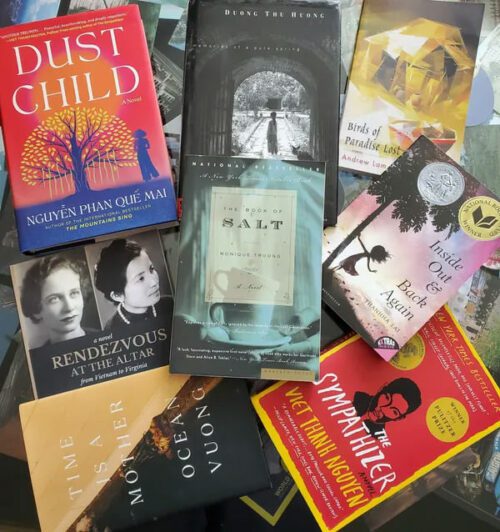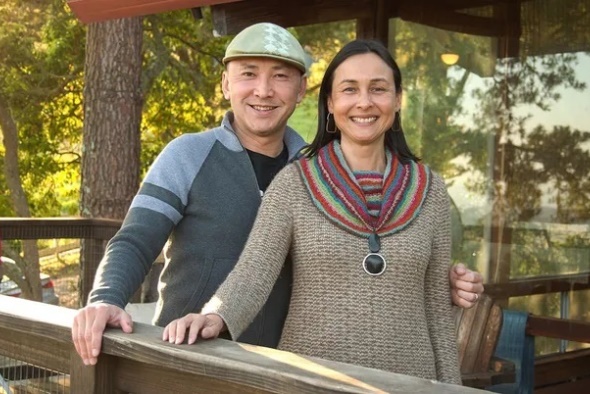Minh Huynh Vu
Opinion contributor
Sunday marks 48 years since the fall of Saigon and the end of the Vietnam War. It is crucial to recognize the importance of Vietnamese voices in shaping our collective understanding of the conflict’s lasting impact on America.
From harrowing stories of escape by boat and overcoming obstacles as refugees in a new land, to the second generation’s navigation of cultural divides, family history and intergenerational trauma, these experiences have been meticulously woven into the fabric of literature and art.
Despite the undeniable success of a few famous authors, significant challenges remain in bringing these powerful stories to the public sphere, making it all the more vital to support and celebrate Vietnamese artists.
More than 2 million U.S. residents claim Vietnamese ancestry or origin
The Vietnamese diaspora now comprises more than 2 million U.S. residents who were either born in Vietnam or report Vietnamese ancestry or origin, according to the Migration Policy Institute.

Over the past decade, the literary world has witnessed the meteoric rise of Vietnamese diasporic writers such as Viet Thanh Nguyen, Nguyễn Phan Quế Mai, Monique Truong and Ocean Vuong, who have become essential voices in the global narrative. However, the success of this relatively small community should not obscure the reality that the American publishing industry remains largely dominated by white voices. Only 22 of the 220 books on The New York Times bestseller list for fiction in 2020 were written by people of color.
Diasporic writing goes beyond merely increasing representation within existing systems; it involves creating new conditions to support and nurture the next generation of voices.
To challenge the institutional racism embedded in the publishing industry, the Diasporic Vietnamese Artists Network (DVAN), co-founded by professor Isabelle Thuy Pelaud and Pulitzer Prize winner Viet Thanh Nguyen, formed a unique partnership with Texas Tech University Press (TTUP) and their Editor-in-Chief Travis Snyder.
Planting new roots for retelling Vietnamese American stories
Together, they created the Diasporic Vietnamese Artists Network Series imprint, providing a platform for publishing and promoting works by diasporic Vietnamese writers – and planting new roots for retelling Vietnamese stories.
In the face of the overwhelmingly white publishing industry, DVAN makes the final decisions and steers the direction of this nonprofit publishing collaboration.
Initially focused on supporting emerging writers, the DVAN-TTUP collaboration has grown to accommodate established authors as well. This spring, DVAN is launching three new collections by critically acclaimed authors: “Hà Nội at Midnight” by Bảo Ninh, Quan Ha and Cab Tran; “Nothing Follows” by Lan Duong; and the 25th anniversary edition of “Watermark: Vietnamese American Poetry and Prose” (Barbara Tran, Monique Truong and Khoi Luu).

Over the next two years, the Diasporic Vietnamese Artists Network Series will release at least six additional works, including a poetry collection, a novel, two memoirs and two translations. To sustain the series’ growth and meet increasing demand, DVAN will continue fundraising for its initiatives, inviting community members and patrons to join the publishing journey. As the demand for such stories continues to rise, DVAN seeks to expand the series further and will expand its publications through its other partnership with Kaya Press.
Pelaud, DVAN co-founder, emphasizes the importance of not being misled by appearances of success. Since the end of the Vietnam War in 1975, the legacy of building, connecting and hustling inherited from refugee and immigrant parents still holds the community together.

The work of bringing these vital voices to the forefront continues, driven by resilience and determination of the community itself.
Minh Huynh Vu is the project coordinator for the Diasporic Vietnamese Artists Network Series imprint, in collaboration with Texas Tech University Press. Beyond DVAN, they are a Ph.D. student at Yale University studying the ongoing afterlife of the war in Vietnam.


